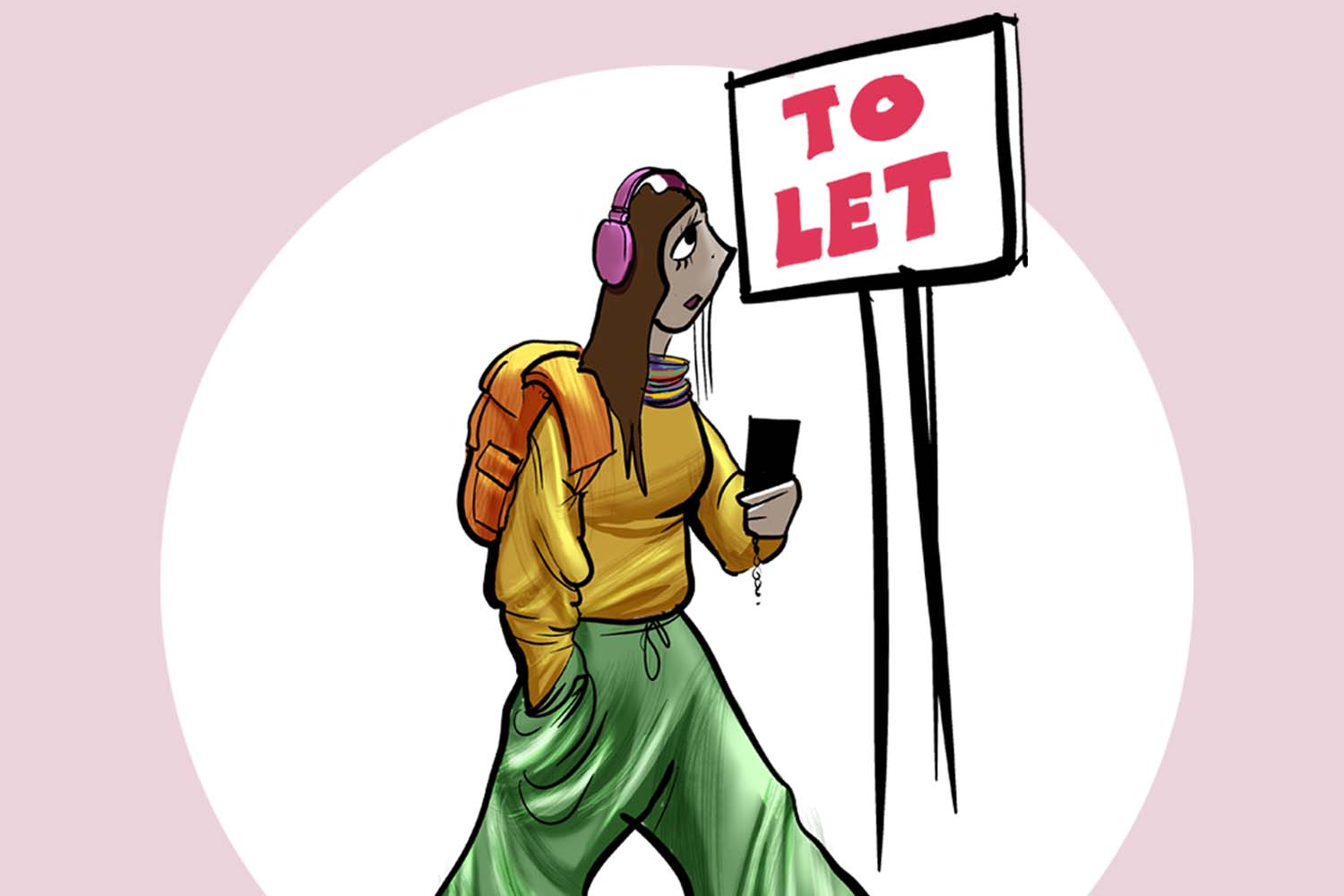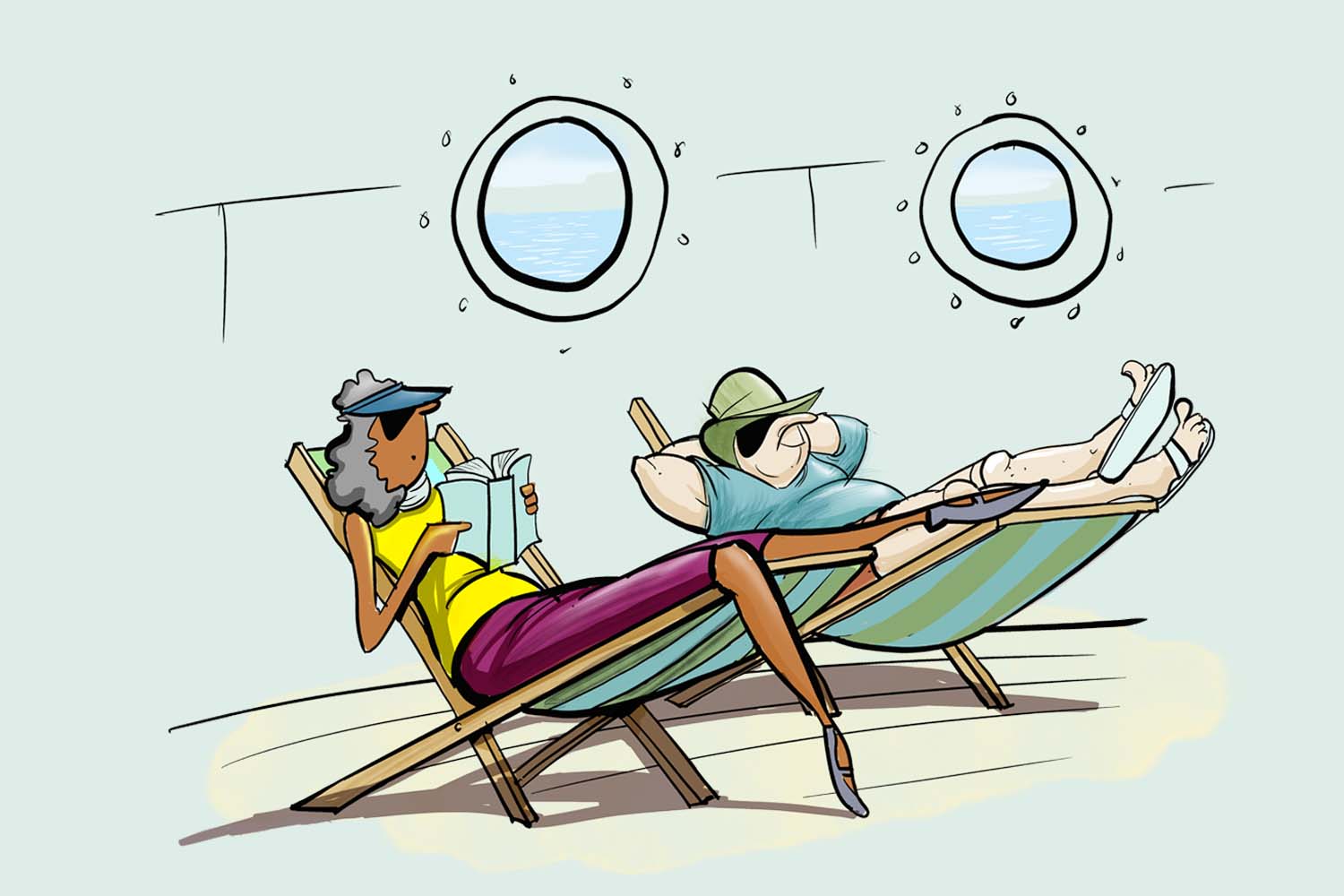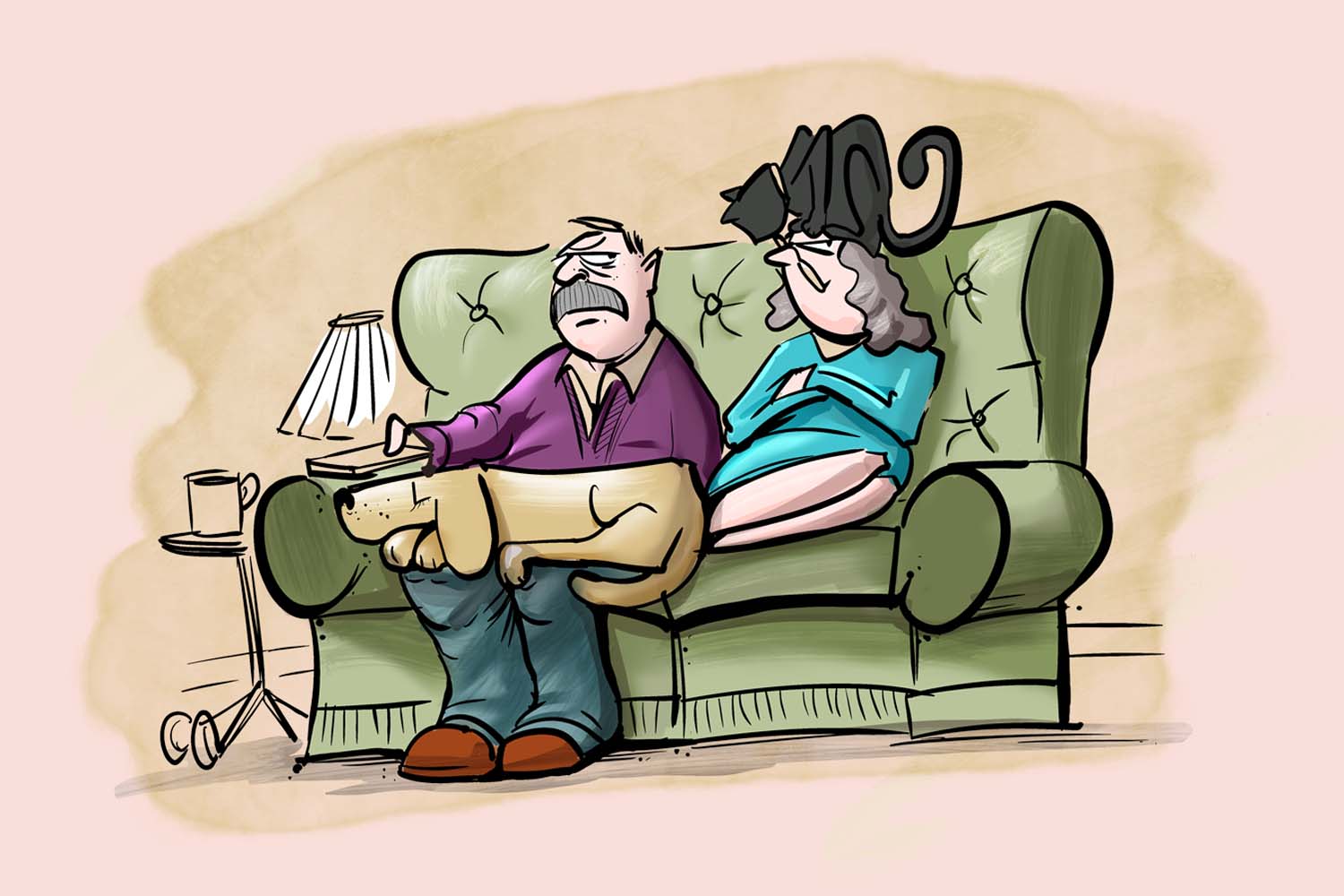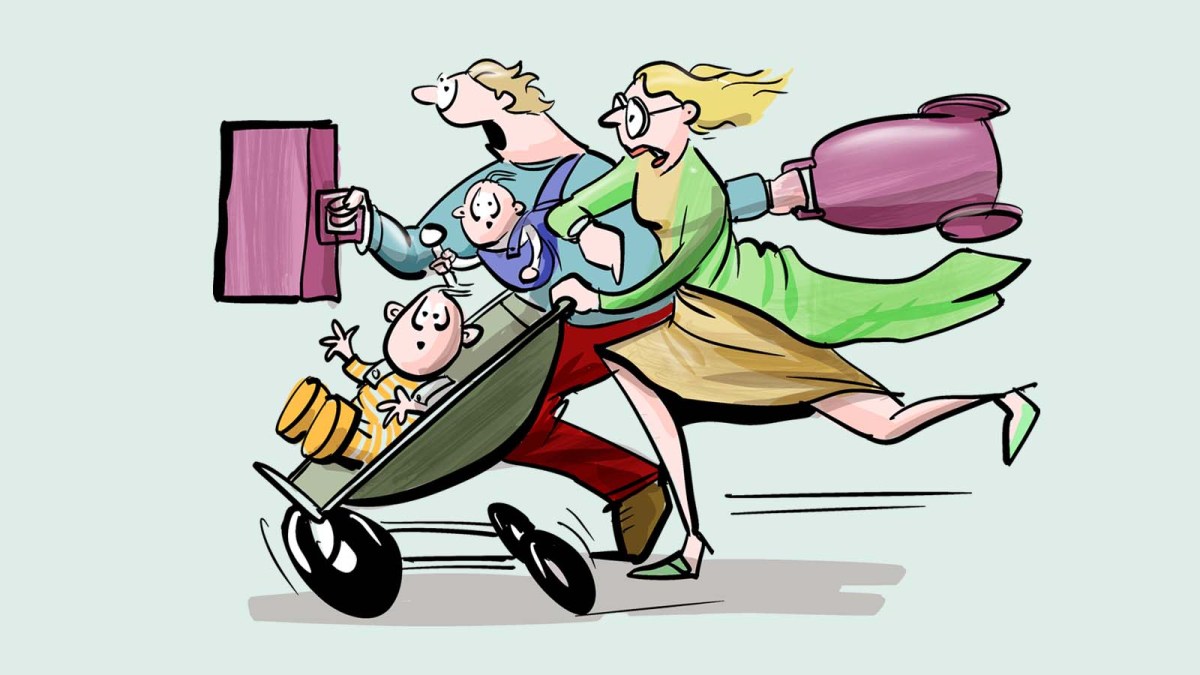Inflation may have fallen from the perilous double-digit levels of 2022, but price rises are far from being tamed and millions of households are still feeling the squeeze.
The consumer prices index (CPI) measure of inflation remained stubbornly above the Bank of England’s 2 per cent target, coming in at 3.8 per cent for the year to September. Meanwhile CPIH, which includes housing costs, reached 4.1 per cent. Inflation is not falling as fast as experts had predicted, or as anyone would like.
Crucially, even when inflation does ease, it doesn’t mean that prices are falling — it merely indicates that they are climbing at a slower rate.
But the official figures can only tell us so much. How rising prices affect you personally depends on everything from which groceries you put in your shopping basket and how often you go on holiday, to whether you have a mortgage, children, or a dog.
Holly Tomlinson, a financial planner at the wealth manager Quilter, said: “Inflation has eroded household purchasing power, but more so for some than others. Inflation is not a ‘one size fits all’ issue and personal circumstances will dictate its impact.”
So, whose wallets are being squeezed the hardest? Quilter analysed inflation data from the Office for National Statistics (ONS) to see which groups are feeling the pinch. It looked at the increase in average annual household spending in various categories in the year to June 2025, the latest data available, as well as the latest CPI figures, house prices and mortgage rates.
Many of the groups are affected by the same price rises — for example, housing costs, which include council tax, utility bills and home maintenance — while others are affected by specific overheads, such as school fees or mortgage interest.
The Just Starting Outs
ILLUSTRATION BY RUSSEL HERNEMAN
Single, in their twenties, renting a home and in their first job since leaving education. The Just Starting Outs are feeling the squeeze as they make their way in the world.
Housing costs are a big outlay for this group. Private rents increased 5.5 per cent in the 12 months to September, according to the ONS. The latest quarterly Rental Market Report by the property website Zoopla said average monthly rent had reached £1,301. For someone aged 22-29, that’s a huge chunk of the average salary of £648 a week, according to the House of Commons Library.
This cohort also need to find room in their budget for transport costs, which are up 11.4 per cent to an average of £4,586 a year, while communication costs for this tech-savvy group have climbed 9.4 per cent to £1,154 a year. Overall their average annual outgoings have increased from £44,663 to £48,394 in the past year.
Marianna Hunt from the investment firm Fidelity International said: “Young renters spend a large share of their income on housing, leaving little buffer for rising food and transport costs. Limited savings and stagnant real wages make this group very vulnerable to cost of living pressures.”
Inflation rate: 8.4 per cent
Couple with two children
Growing families are seeing growing costs and the addition of VAT to private school fees this year was a big blow. The average cost of education for two children has increased 22.2 per cent to £22,000 a year, Quilter said.
Mortgage costs are a significant burden, particularly for those who have moved up the ladder from a starter home to their forever family house and so taken on more mortgage debt at a time when interest rates have been high.
• On £100k and struggling: why it’s hard being a Henry
This group is likely to be under the greatest financial pressure of the lot, Hunt said. With dependants, there is less flex in the budget to make cutbacks on necessities such as groceries, clothing and utilities. Their average overall annual costs have leapt to £71,378 from £59,747 a year ago.
Families with younger children have been dealt something of a lifeline with the expansion of free childcare hours, which came into effect from September. But nursery costs are still rising and the free provision only goes so far.
Tomlinson said: “Younger families have seen some relief thanks to the expansion of free childcare hours, but the support rarely covers the costs.”
Inflation rate: 19.5 per cent
Single, high earner
ILLUSTRATION BY RUSSEL HERNEMAN
Higher earnings often mean higher outgoings, so those climbing the career ladder are in no way immune from the effects of inflation — although they are better equipped to deal with it.
For this cohort, the biggest cost pressures come from discretionary spending where, for example, average restaurant and hotel prices have risen by 9.6 per cent. The cost of an all-inclusive holiday is up 9.5 per cent year-on-year, according to ONS data, while recreation and cultural activities cost 11.3 per cent more than a year ago.
• Generation X is about to be hit hard at the worst possible time
Mortgage costs are a big factor for this group. Quilter estimates that inflation for mortgage interest for an average property in London was 37.9 per cent over the past year, with the average total cost being £35,847, as house prices have risen and interest rates have stayed high.
Overall annual costs for this cohort have leapt from £59,916 to £69,822 — the highest rate of inflation among our groups.
Hunt said: “This group may be less affected by cost of living pressures. High earners might be better placed to absorb inflation by reducing their savings or cutting their discretionary spending.”
Inflation rate: 22.7 per cent
Empty nesters
ILLUSTRATION BY RUSSEL HERNEMAN
The kids have left home and the mortgage is paid off, this couple are in their peak earning years and have one eye on retirement.
Unfortunately, the other eye is on their beloved dog, Fido, and the cost of owning a pet has increased by 4 per cent, to an average of £1,036 a year, thanks to rising insurance prices, vet bills and the cost of food and treats.
The biggest boon is that the amount they are spending on housing has dropped significantly now their mortgage is cleared. Instead, miscellaneous goods and services, which includes spending on jewellery, cosmetics, haircuts and subscriptions, is one of the biggest cost increases they are grappling with. Inflation for this category is 13.15 per cent.
“Empty nesters are probably the least affected by inflation,” Hunt said. “Their biggest pressures are discretionary costs such as travel and leisure. However, their strong financial position and mortgage-free state should mean they can maintain their lifestyle with minor adjustments.”
Inflation rate: 9.7 per cent
Pensioner couple
ILLUSTRATION BY RUSSEL HERNEMAN
Losing the £200 winter fuel payment has been a blow for wealthier pensioners, particularly as energy prices are 2.2 per cent higher than last winter — and 44 per cent higher than in 2021. The average dual-fuel household paying by direct debit spends £1,755 a year on gas and electricity under the energy price cap.
Grocery prices are a big factor for pensioner households, and food inflation last year reached 11 per cent. Food prices have increased 37 per cent over the past five years, compared to just 4.4 per cent in the previous five years. In the year to July, the price of coffee leapt 18 per cent, chocolate 17.2 per cent and beef and veal 24.3 per cent, the ONS said.
Healthcare, at least, has enjoyed negative inflation, with average annual costs falling 14.6 per cent to £395.20.
• Why family bullying over inheritance has become rife
Average annual household spend on restaurants and hotels has reached £2,309, up 9.6 per cent in a year — a blow to those pensioners who planned to enjoy more leisure time in their retirement. A 30 per cent rise in airfares recorded in July’s inflation figures was the largest single-month increase on record.
Hunt said: “Pensioners spend a larger share on essentials like heating and groceries, both of which are being hit by above-average inflation. Those on a fixed income have less flexibility to absorb rising bills, but the many who are mortgage-free will at least be protected from any interest rate rises.”
Inflation rate: 10.6 per cent

